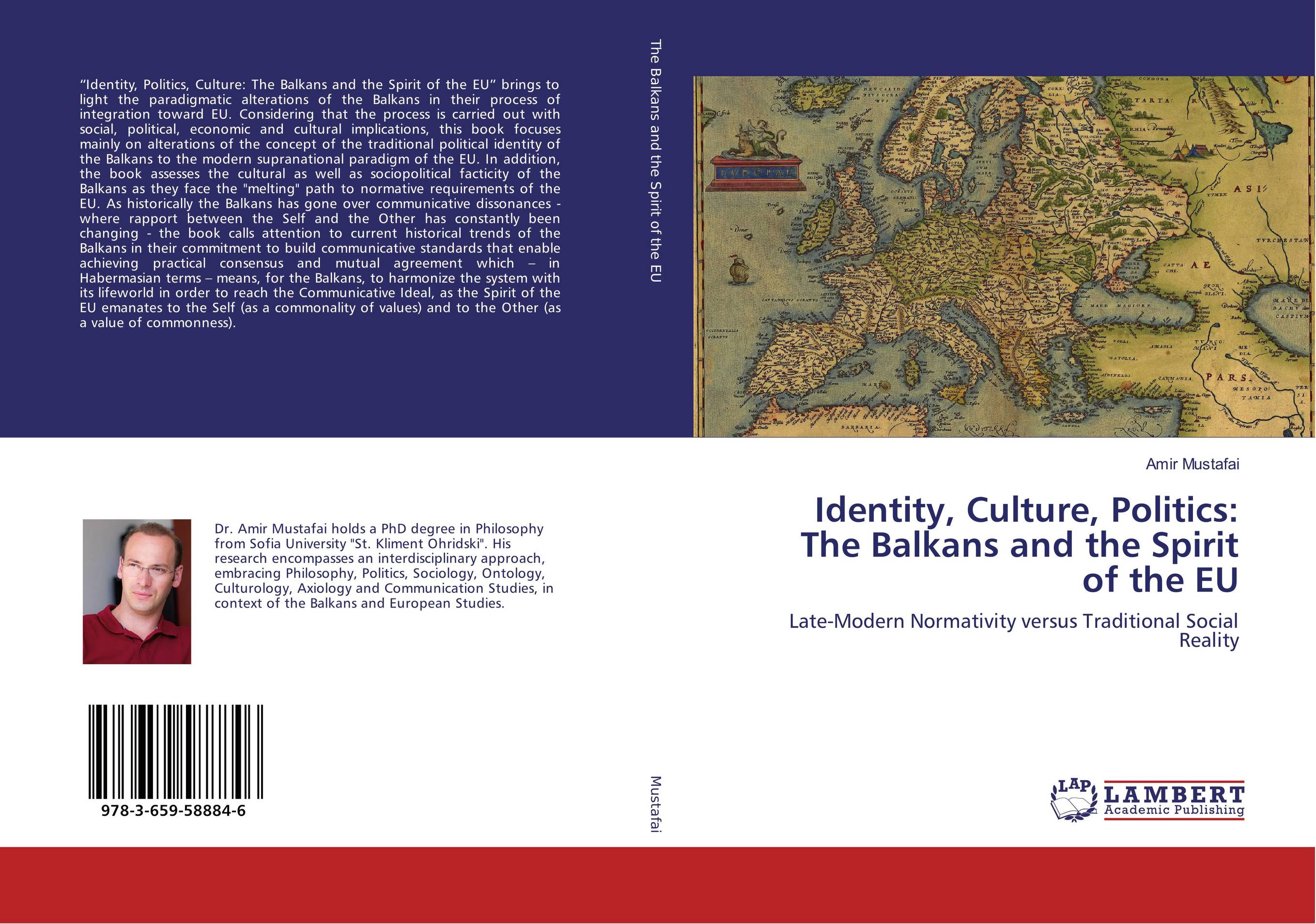| Поиск по каталогу |
|
(строгое соответствие)
|
- Профессиональная
- Научно-популярная
- Художественная
- Публицистика
- Детская
- Искусство
- Хобби, семья, дом
- Спорт
- Путеводители
- Блокноты, тетради, открытки
Identity, Culture, Politics: The Balkans and the Spirit of the EU. Late-Modern Normativity versus Traditional Social Reality

В наличии
| Местонахождение: Алматы | Состояние экземпляра: новый |

Бумажная
версия
версия
Автор: Amir Mustafai
ISBN: 9783659588846
Год издания: 2017
Формат книги: 60×90/16 (145×215 мм)
Количество страниц: 296
Издательство: LAP LAMBERT Academic Publishing
Цена: 35948 тг
Положить в корзину
| Способы доставки в город Алматы * комплектация (срок до отгрузки) не более 2 рабочих дней |
| Самовывоз из города Алматы (пункты самовывоза партнёра CDEK) |
| Курьерская доставка CDEK из города Москва |
| Доставка Почтой России из города Москва |
Аннотация: “Identity, Politics, Culture: The Balkans and the Spirit of the EU” brings to light the paradigmatic alterations of the Balkans in their process of integration toward EU. Considering that the process is carried out with social, political, economic and cultural implications, this book focuses mainly on alterations of the concept of the traditional political identity of the Balkans to the modern supranational paradigm of the EU. In addition, the book assesses the cultural as well as sociopolitical facticity of the Balkans as they face the "melting" path to normative requirements of the EU. As historically the Balkans has gone over communicative dissonances - where rapport between the Self and the Other has constantly been changing - the book calls attention to current historical trends of the Balkans in their commitment to build communicative standards that enable achieving practical consensus and mutual agreement which – in Habermasian terms – means, for the Balkans, to harmonize the system with its lifeworld in order to reach the Communicative Ideal, as the Spirit of the EU emanates to the Self (as a commonality of values) and to the Other (as a value of commonness).
Ключевые слова: Political Identity, the Balkans, The EU, Communicative Ideal, intercultural relations



